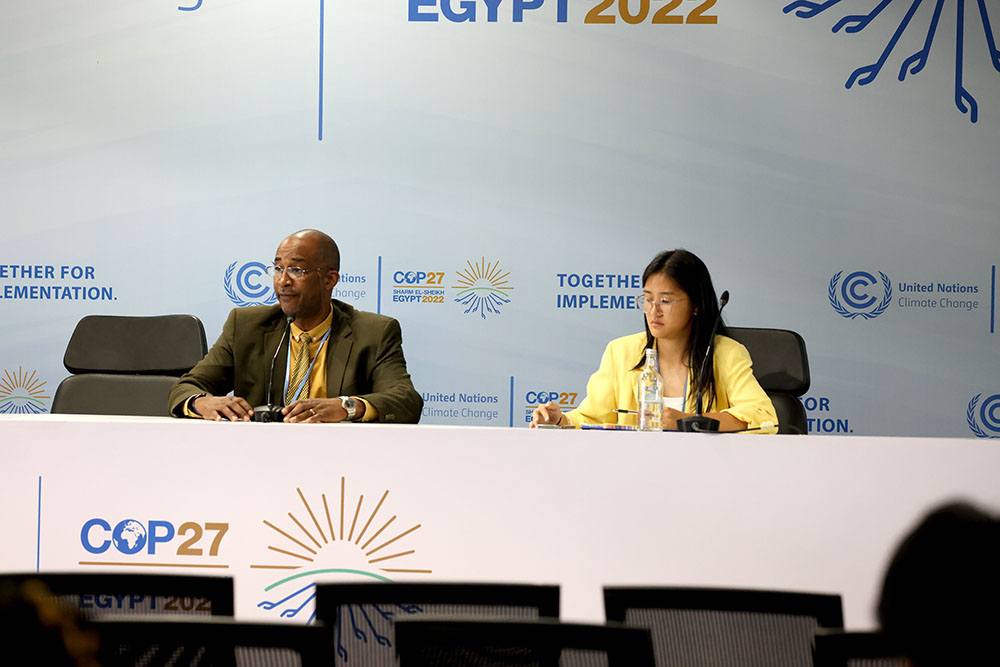OECS United in the fight against Climate Change at COP27

OECS Media Release
The United Nations Framework Conference on Climate Change (UNFCCC), or COP27, ended on November 20, 2022, with what has been called historic outcomes. The two-week conference, which took place in Sharm El Sheikh Egypt, brought together over 45,000 participants – including world leaders, delegates, activists, and observers – to address the problem of climate change and its effects on the lives of people globally. During the first two days of the conference, world leaders convened a high-level round table discussion to discuss solutions to global issues resulting from climate change, including food security, and its effects on vulnerable groups.


The Organisation of Eastern Caribbean States (OECS) was represented at COP27 by a five-person delegation led by the OECS Director General, Dr. Didacus Jules. Caribbean territories are highly vulnerable to the impacts of climate change and, therefore, the OECS Commission has been an ardent advocate for finding solutions to the problem, for developed countries to provide climate financing for adaptation, and for measures to be taken to limit the global temperature rise to 1.5 degrees Celsius.
During the event, Dr. Jules gave a candid speech on the devastating impacts of climate change on the Caribbean Region and the lack of climate finance to recover from these shocks. Dr. Jules said:
“We heard that $6.9 trillion is needed [globally] each year to meet the needs of climate change. The fundamental issue surrounding the issue of financing, I want to submit is political. A hundred billion dollars per year is not to be met, until, whenever. Contrast that with the speed and the urgency for the engine of war in Ukraine – $30 billion US dollars mobilized in the space of two weeks.”
He further lamented that “the factors impacting the availability of climate finance for SIDS include pre-existing and current debt burdens; structural impediments such as eligibility requirements, which are designed to maintain the systems of inequity; the indifference and insensitivity of developed countries; and bureaucratic hurdles resulting in lengthy intolerable delays.”





